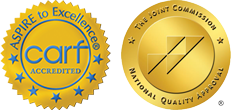Introduction
Sobriety, for many struggling with addiction, feels like a lofty and elusive goal. For years, substance abuse invades and destroys the harmony and balance in one’s life, resulting in a fractured sense of self. A successful approach to achieving long-term sobriety must address more than just the physical aspect of addiction; it must consider the mind, body, and spirit as a cohesive unit to truly help individuals find lasting success in recovery. This article explores the importance of taking a holistic approach to sobriety, with a focus on the benefits of integrating mental, physical, and spiritual wellness into the recovery process.
Mind: The Power of Mental Health in Recovery
Addressing mental health plays a critical role in the holistic approach to sobriety. According to the Substance Abuse and Mental Health Services Administration (SAMHSA), nearly 8 million adults in the United States have a substance abuse disorder in addition to a mental health disorder [1]. In many cases, individuals turn to alcohol or drugs to self-medicate their underlying psychological issues such as anxiety, depression, and trauma.
Effective treatment must address these co-occurring disorders simultaneously, as it’s nearly impossible to achieve lasting sobriety when mental health struggles persist. Moreover, promoting overall mental wellness during recovery helps individuals build the necessary emotional resilience and coping skills for a substance-free life. Examples of mental health treatments that can benefit those in recovery include cognitive-behavioral therapy (CBT), dialectical behavior therapy (DBT), and trauma-focused therapies.
Body: Healing the Physical Effects of Addiction
The physical impact of addiction on the body can be severe and long-lasting. Detoxification and withdrawal are just the first steps in a comprehensive approach to sobriety. Healing the body during recovery involves addressing the nutritional deficiencies, hormonal imbalances, and chronic pain that may be present due to alcohol or drug use.
According to the National Institute on Drug Abuse (NIDA), multiple studies have demonstrated the importance of proper nutrition in the recovery process[2]. Eating a balanced diet rich in antioxidants, whole grains, lean protein, and healthy fats can support physical healing and help to repair damaged organs and tissues. Additionally, engaging in regular physical activity can improve mood, boost energy levels, and reduce stress – all essential components of a successful recovery.
In addressing the physical component of sobriety, some individuals may benefit from alternative or complementary therapies such as acupuncture, massage, and chiropractic care. These treatments can help alleviate pain and promote relaxation, further supporting the body’s healing and restoration.
Do you have a loved one struggling with addiction?
We know how hard that can be. Give us a call to find out what options you have.
Spirit: Embracing the Role of Spirituality in Recovery
The integration of spirituality into the recovery process is believed by many to be a vital aspect of achieving lasting sobriety. While spirituality is a deeply personal and individual concept, it universally serves to connect individuals to something greater than themselves. For some, this is a connection with a higher power or sense of purpose; for others, it’s a reconnection with their authentic selves or a desire to live a more meaningful life.
There is growing evidence that highlights the positive impact of spirituality on recovery outcomes. According to a study published in the Journal of Studies on Alcohol and Drugs, those who reported attending spiritual or religious services were more likely to maintain sobriety and avoid relapse[3]. In addition, a strong spiritual foundation can provide a sense of hope, purpose, and community, all of which play essential roles in sustaining long-term sobriety.
There are countless ways to explore and nurture one’s spirituality during recovery, including meditation, yoga, prayer, or attending support groups and 12-step programs. Ultimately, embracing spiritual wellness involves personal reflection, growth, and a genuine desire for transformation.
Conclusion
True sobriety is not simply the absence of alcohol or drugs; it’s the reintegration of a healthy and vibrant mind, body, and spirit. A holistic approach to recovery that focuses on the interconnectedness of these aspects is the key to achieving lasting success in sobriety. By addressing mental health, physical healing, and spiritual growth, individuals can forge a pathway toward a fulfilling, substance-free life.




